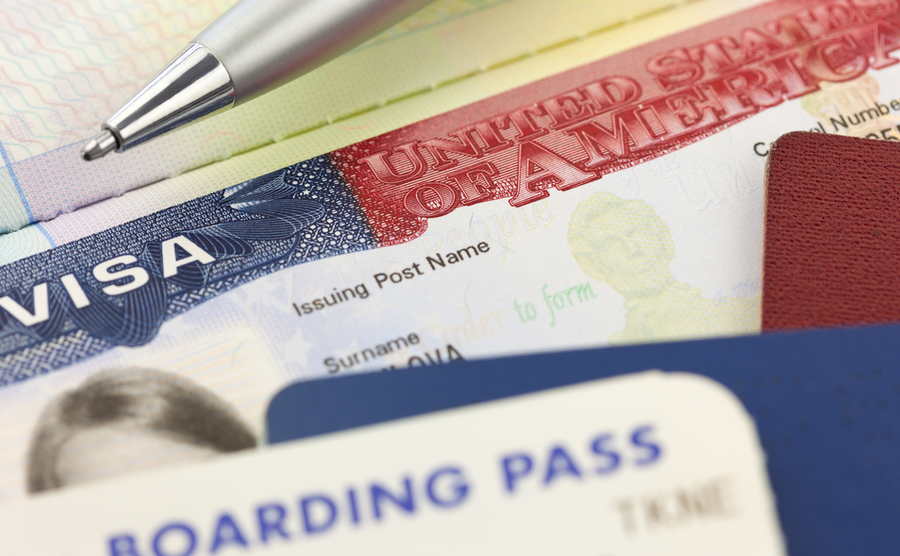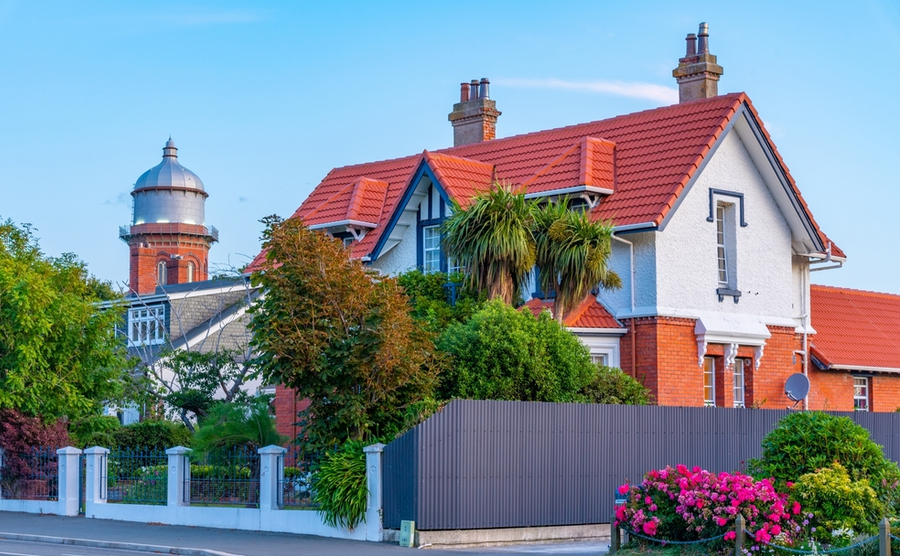Australia, New Zealand, the US and Canada – all English-speaking countries with healthy outdoor lifestyles, fabulous natural scenery and plenty of space for great value homes. You don’t have to migrate full-time to any of them to enjoy what they have to offer – you could consider a second home for spending large chunks of the year? To help you weigh up your options, we look at how short-stay visas work and highlight some important rules governing foreign home ownership in some of these countries…
Short stay visas

Visa options for long haul second homeowners.
In today’s digital world, Australia, New Zealand, the US and Canada all offer electronic travel passes to citizens from countries on their visa waiver list, enabling visits of up to three months at a time. The idea is that they are easier to obtain than more formal visas, typically remotely and from a government website, have short processing times and are either free or cost a minimal fee. For longer stays, foreign visitors will need to apply for a visa, which in some cases can be done after entering the country.
For trips of up to 90 days, the US has its ESTA (Electronic System for Travel Authorization), which costs just US$21. Longer stays will require a non-immigrant B-2 visitor visa, which costs US$185 and can be used for stays of up to six months, extendable for a further six months at the discretion of US customs.
Australia’s free eVisitor is valid for a year and allows you to come and go to Australia for up to three months at a time. Otherwise, it has a visitor visa (tourism stream), which can be applied for in or outside Australia. Usually granted for three months, applications are on a case-by-case basis and eligible applicants be granted one for six or 12 months.
Similarly, the electronic NZeTA makes visiting a second home in New Zealand easy. Applied for online and with a fee of just NZ$17, it lasts for two years and allows for multiple stays of up to three months. For longer stays of up to nine months you could apply for New Zealand’s visitor visa, which costs $211 and includes your partner and children. You could enter the country on an NZeTA and then obtain this visa.
Canada is more flexible with its eTA (Electronic Travel Authorisation), which costs CAD$7 and typically allows for stays of up six months at a time.
Regardless of country, with any temporary/ visitor visa you will need to be in good health and have adequate health insurance in place to cover any unexpected medical treatment. You will also be required to show you have sufficient funds to support yourself financially during your stay and cover your flight home! A criminal record and usually any convictions will also need to be declared and could lead to refusal of a visa.
Buying property

What rules are in place for second homeowners in New Zealand, Australia, Canada and the US?
Don’t expect to be able to pick any property you fancy in most of these countries. In recent year, property markets in Australia, New Zealand and Canada, have surged and seen rapid price rises off the back of speculation by non-resident investors. This has hindered many local people’s options for buying a home and led to restrictions on foreign home ownership, which we outline below.
The US’s STR zones
Due to its size, in the US, foreign citizens, including Britons, remain free to purchase property for use as a second home or otherwise. Anyone buying a second home there that they intend to rent out to holidaymakers should pay attention to zoning rules, particularly in the Sunshine State around Orlando. A property must lie within a short-term rental (STR) zone to be made available for vacation rentals and a licence will be required. The details stipulate that a property outside an STR zone cannot be let short-term (for less than 30 days at a time) more than three times a year. Always use an experienced realtor when purchasing in the US and they’ll be able to guide you on this.
Australia’s Foreign Investment Review Board
In Australia, non-resident foreign citizens need to obtain foreign investment approval from the country’s Foreign Investment Review Board (FIRB) to be able to enter into a contract for purchasing a residential property. Doing so is relatively simple and is done via the FIRB website. There are FIRB fees involved though, which have risen steeply in recent years so be sure to budget for them. They are scaled, starting at AUS$4,200 for transactions less than AUS$75,000, then AUS$14,100 for up to AUS$1million (inclusive), and AUS$28,200 for up to AUS2million (incl.), rising further each million threshold. Foreigners are generally prohibited from purchasing established dwellings in Australia, unless for permanent living or they are redeveloping a property (in which case rules apply).
What the FIRB does allow foreigners to buy are new buildings, defined as property that has not been previously sold as a dwelling and has not been previously occupied, and plots/ land. With a building plot, the property must be constructed within four years of the approval date and completed proof must be sent to the FIRB within 30 days. Some developers can apply for a ‘new or near-new exemption certificate’ for their residential project, which can be under construction or not occupied for more than 12 months in total. Proof of the certificate means foreign purchasers are not required to obtain FIRB approval when buying a property in that development. To be eligible, the new development must have at least 50 self-contained dwellings.
New Zealand’s Overseas Investment Amendment Act 2018
Sadly, options are currently very limited for anyone wanting their own idyllic slice of New Zealand to enjoy on a part-time basis. Since the country introduced its Overseas Investment Amendment Act 2018, there are only two specific types of property that non-resident foreign nationals can purchase in New Zealand. The first is an off-plan apartment from a developer who has an exemption certificate permitting them to sell a percentage of units to foreigners. The second is a hotel where the units are leased back for hotel use (the foreign purchaser can use their unit for up to 30 days in any given year). All other more standard residential property cannot be purchased without becoming a NZ resident.
Canada’s partial two-year ban on overseas buyers
Similarly, right now your buying options in Canada are limited to rural, less populated areas. This is thanks to a two-year ban on foreigners buying real estate in most urban areas which came into effect at the start of 2023 and lasts until the end of 2024. To be exempt from the ban, a property must be in a municipality (CA) with a core population of less than 10,000, or if it’s a metropolitan municipality (CMA) less than 100,000. So if it’s a swanky new city-pad in Vancouver or Toronto that you’re after, you’ll have to wait. But it does mean plenty of recreational properties, including ski homes and country cottages are still an option! As a note of caution, certain types of homes in certain cities attract a heavy tax if purchased by a non-resident foreigner – something worth checking before making an offer!
See our news pages for more information on buying in these countries:

